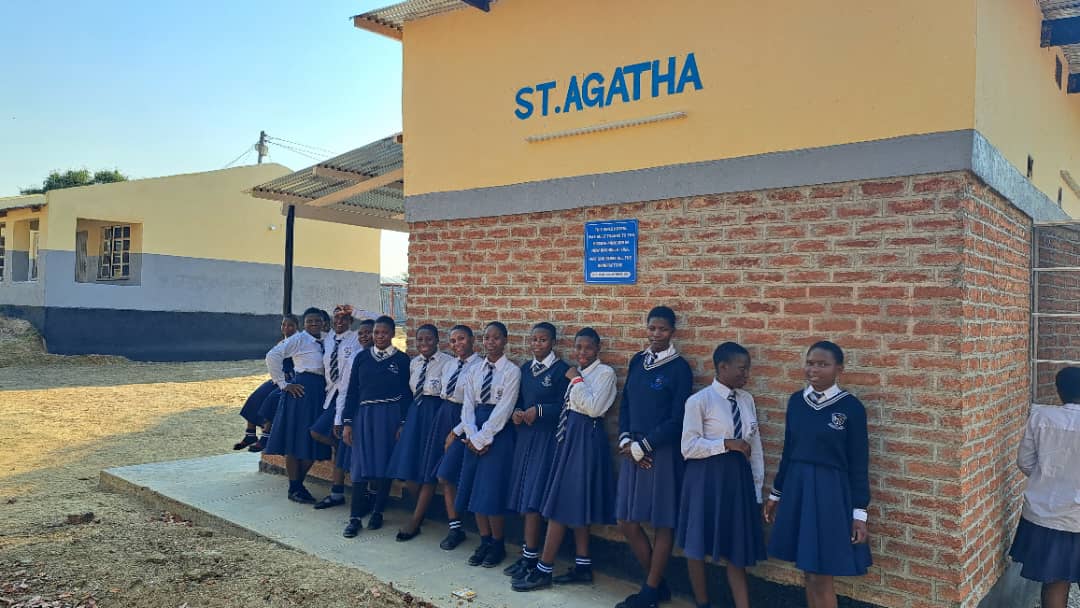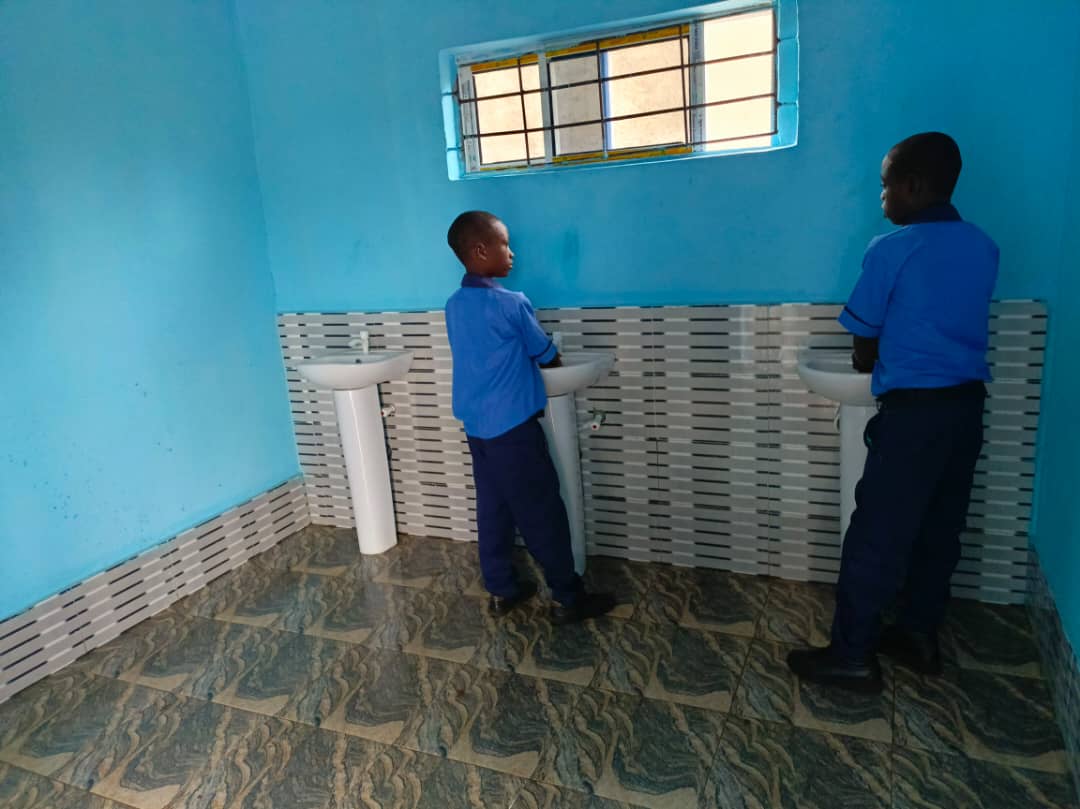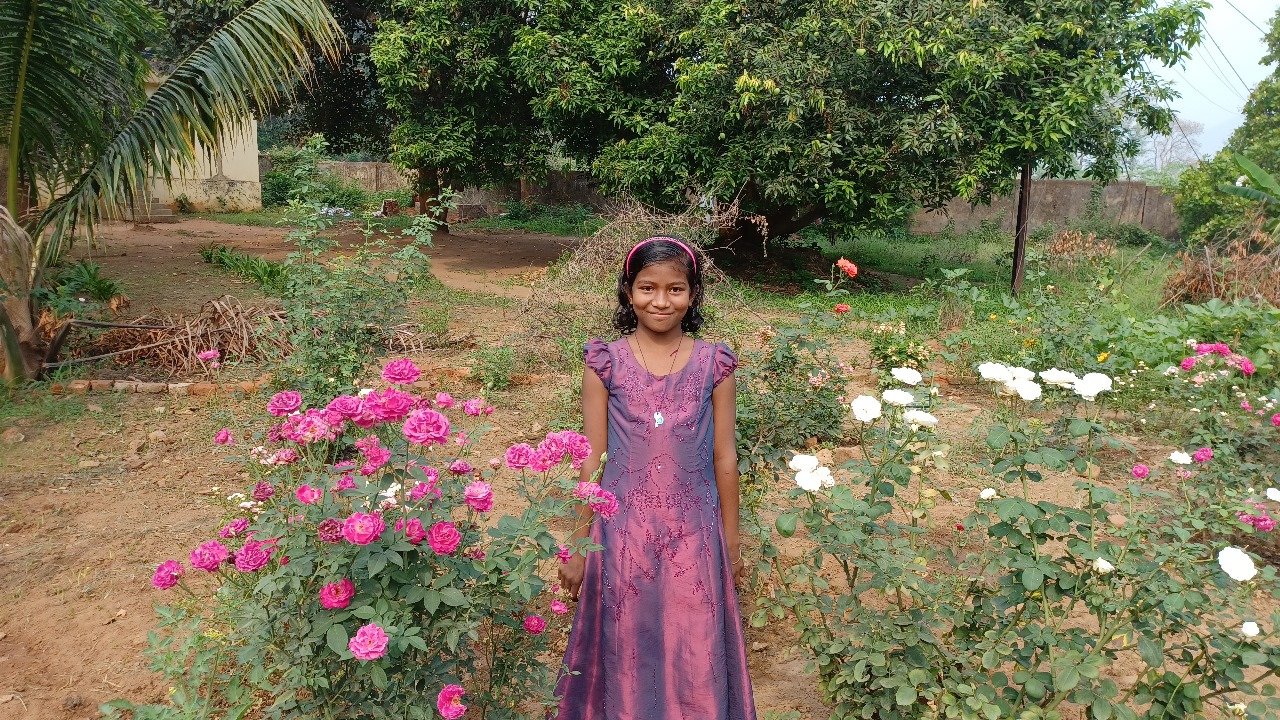INT’L DAY OF RURAL WOMEN: Salesian Missions highlights projects that educate rural women
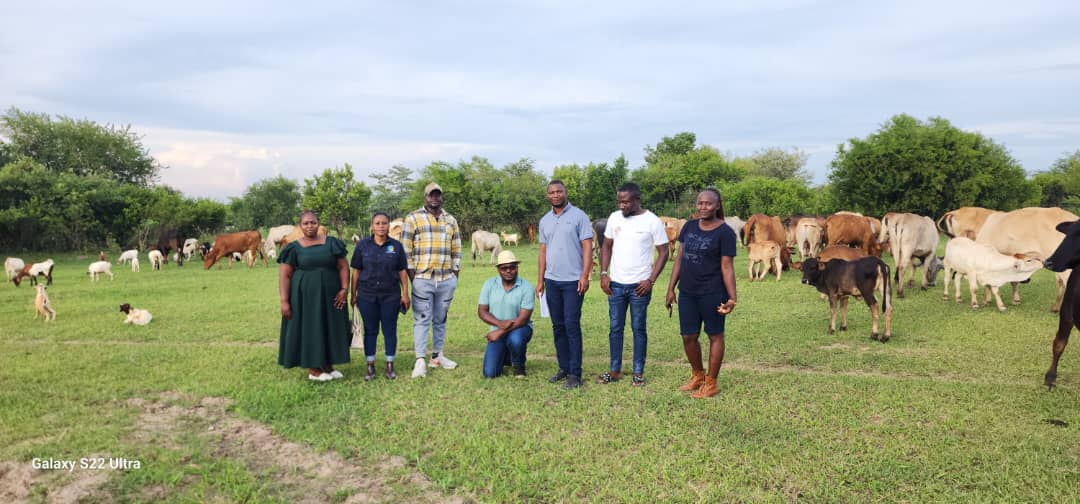
Salesians work to empower rural women, ensure access to education
(MissionNewswire) Salesian Missions, the U.S. development arm of the Salesians of Don Bosco, joins humanitarian organizations and countries around the globe in honoring the International Day of Rural Women, which is celebrated each year on Oct. 15. This day, which was first established in 2008, recognizes “the critical role and contribution of rural women, including Indigenous women, in enhancing agricultural and rural development, improving food security, and eradicating rural poverty.”
The United Nations has noted, “Achieving gender equality and empowering women is not only the right thing to do but is a critical ingredient in the fight against extreme poverty, hunger and climate change. Rural women have less access to a range of resources, from land rights and credit to education and technology. If women had the same access to productive resources as men, farm yields could increase by 20-30%, feeding an additional 100 to 150 million people.”
Salesian missionaries living and working in more than 130 countries are focused on achieving gender equality through programs targeted specifically for young women and girls. These programs provide opportunities for education and training that lead to livable wage employment.
“Salesian missionaries are working to empower rural women through education and social programs in countries around the globe,” said Father Michael Conway, director of Salesian Missions. “Ensuring access to education enables women to develop a reliable source of income for their families and contribute in meaningful ways to their communities.”
In honor of the International Day of Rural Women, Salesian Missions is proud to share Salesian projects that empower rural women.
BOLIVIA
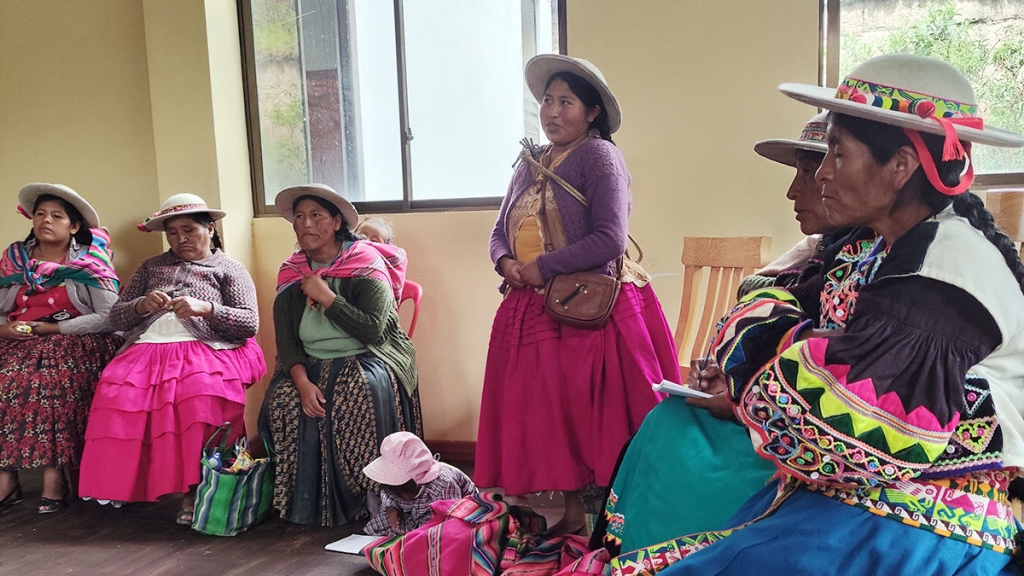
A Bosco Global initiative in Bolivia focused on empowering Indigenous women while respecting their customs and culture.
Through Bosco Global’s “Deconstructing inequality on behalf of the rights of Indigenous women in the province of Muñecas” project, 80 Indigenous women have taken part in training courses in Bolivia. The project is supported by Generalitat Valenciana, the government institutions of the Spanish autonomous community of Valencia.
The project, which is taking place in the municipalities of Ayata, Chuma and Aucapata, focuses on empowering women. One workshop focused on “Leadership, self-care and social spaces” and the other on “Shared responsibility in the home.” The trainings were with the collaboration between Bosco Global and Machaqa Amawta Foundation, along with the Federation of Bartolina Sisa Indigenous Peasant Women.
The training respected the women’s customs and culture and tried to deconstruct stereotypes women face regarding self-esteem and self-care that they perceive as inherent to their situation.
GUATEMALA
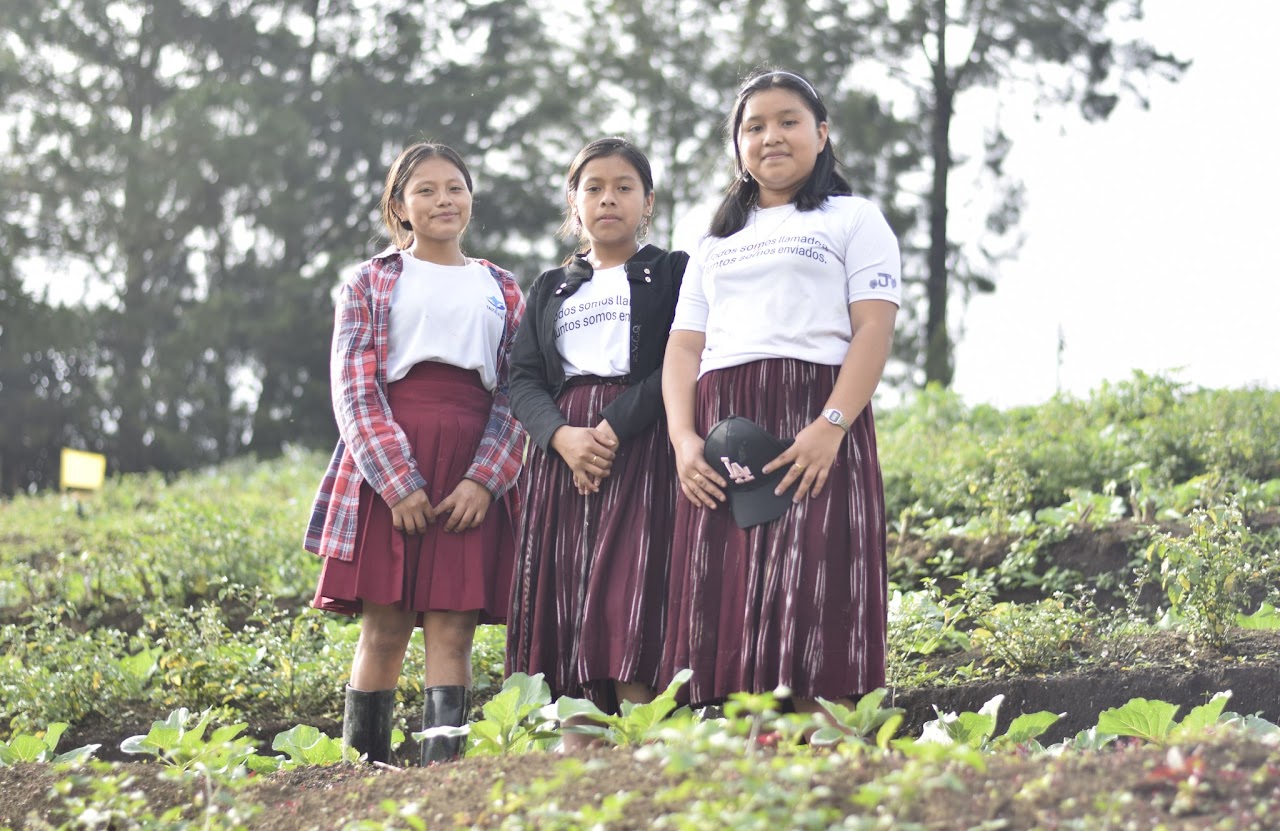
Young women at the Salesian Talita Kumi centers in Guatemala are learning sustainable practices to grow their own food.
Young women from the Salesian Talita Kumi centers, located in San Pedro Carchá, Chisec and El Estor, Guatemala, are growing healthy food in a sustainable way. One of the fundamental principles of the centers is the application of sustainable practices for the prevention, protection, management and conservation of the environment.
A Salesian noted, “By growing vegetables, fruits and greens for their own consumption, the 700 boarding students not only ensure a nutritious diet but also promote self-sufficiency and respect for nature. As part of this process, they produce bokashi organic fertilizer, a fermented compost made from food scraps, ash, silty soil, garden waste, animal manure and other biodegradable materials.”
The use of this fertilizer has enriched the soil quality within the facilities, improving its biological composition and fostering long-term sustainable agriculture. Beyond its environmental benefits, this practice strengthens the students’ sense of ecological responsibility and commitment to a greener future.
The Salesian explained, “The efforts of Talita Kumi students demonstrate that environmental education and community action can create a positive impact on both people and the planet. By growing their own food and regenerating the soil through sustainable methods, these young women become agents of change, inspiring their communities to adopt eco-friendly practices.”
INDIA
Bosco Education & Skill Training Center for Women, part of the Konkan Development Society in the Gadag district, Karnataka, India, offered skills training to vulnerable women thanks to donor funding from Salesian Missions. There were 290 women who took part in the training.
The women, aged 18-35, took tailoring and computer classes to help improve their life circumstances. The initiative is part of the self-help groups that Salesians developed to help women become financially self-sufficient and be able to better care for their families.
One of the beneficiaries is a woman with four children, including one child with physical disabilities. Her husband’s earnings are low and she has to be home to care for the children. Through the training, she has been able to work from home stitching clothing and now earns enough money to contribute financially to the household.
ZAMBIA

The Don Bosco Farm provides hands-on education for students in Zambia thanks to donor funding from Salesian Missions.
Salesian missionaries in the St. John Bosco Community, located in Lusaka, Zambia, created the Don Bosco Farm to enhance learning experiences for students thanks to donor funding from Salesian Missions. The farm will also provide nutritional support for students and Salesians.
Salesian missionaries operate three agriculture schools in the region. Students receive classroom instruction and spend three months honing their skills on a working farm. Finding enough farms willing to take students has been a challenge. Establishing the Don Bosco Farm ensures students have the hands-on working time they need.
With the donor funding, Salesians purchased layer chickens, pigs and cattle, as well as feed. They also paid for farm maintenance and wages. The project beneficiaries include 40 students and educators in Makeni, 28 Salesian novices in Kabwe, and 50 Salesians and lay people attending activities at the provincial house.
The farm will remain sustainable with several activities, said a Salesian. He explained, “The farm will generate income through the sale of agricultural products, such as livestock and meat for local markets. Income can also be generated through agro activities, such as farm visits and educational tours. Salesians want to develop an integrated farming system by developing fish ponds which will also be a source of revenue to support the running of the farm. This project has been essential in ensuring students have access to the hands-on education they need while the farm products will feed our Salesians and students.”
###
Sources:
BOLIVIA: Indigenous women gain leadership skills/ANS Photo (usage permissions and guidelines must be requested from ANS)
GUATEMALA: Young women grow food using sustainable practices/Photo courtesy of Don Bosco Green Alliance
INDIA: Salesians empower women with skills training thanks to donor funding from Salesian Missions
International Day of Rural Women
ZAMBIA: Don Bosco Farm established for education thanks to donor funding from Salesian Missions/Photo courtesy of Salesian Missions (contact for usage permissions)


